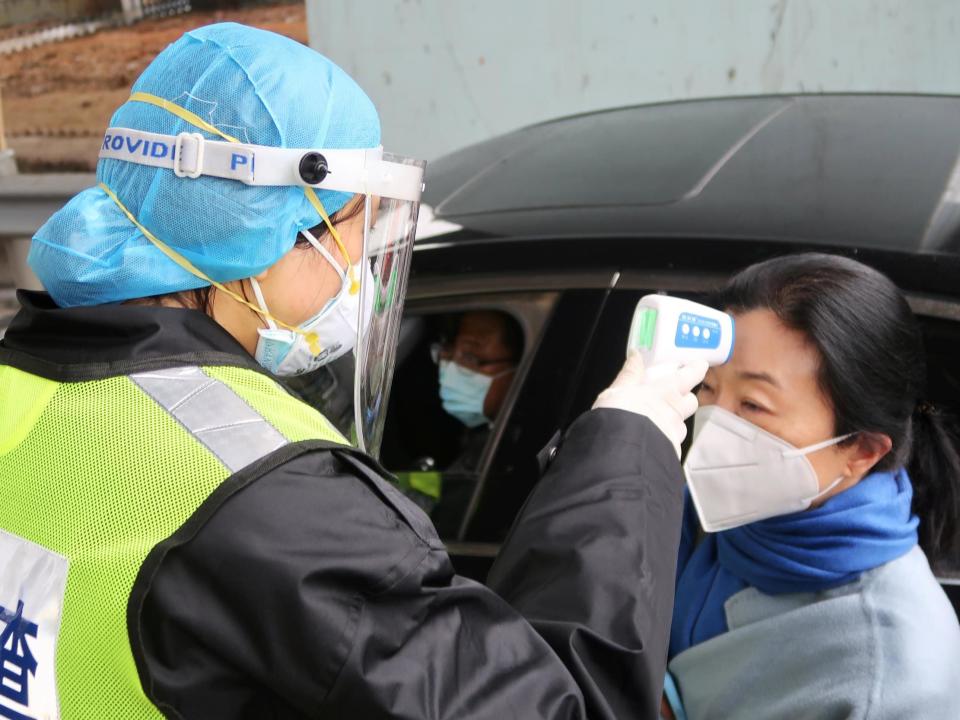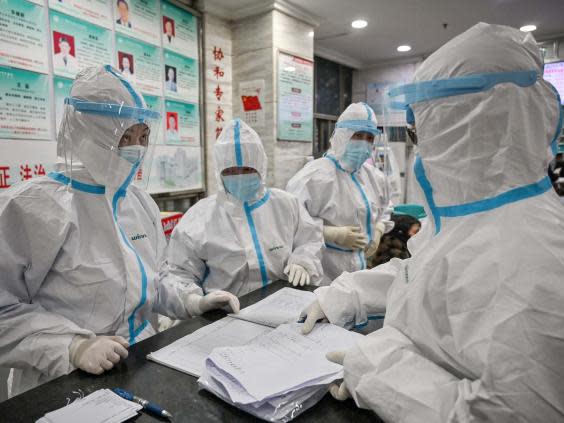Coronavirus latest: China extends New Year national holiday for 3 days as it urges people not to travel

China has extended its Lunar New Year holiday by three days in an effort to contain the spread of the coronavirus, which has now claimed 81 lives.
Millions of people travel home to be with family during the celebrations and Beijing hopes to keep people inside and avoid more infections by extending the festivities to Sunday.
In a statement, China’s cabinet said it had pushed back the end of the New Year holiday, which each year prompts the country’s busiest travel period, to “reduce mass gatherings [and] block the spread of the epidemic”.
Schools have also been told to postpone their re-opening and several major firms have shut offices and advised employees to work from home.
The attempts to control the spread of the new virus, which first emerged from a market in the city of Wuhan, have progressively ramped up over the past week.
First Wuhan and now dozens of other cities in the same Hubei province have been effectively locked down, with all bus, train and plane services cancelled leaving tens of millions of residents quarantined inside.
At checkpoints on roads across the province officials are checking drivers’ temperatures before allowing them through.
Although there have so far been no deaths caused by the virus outside of China, other nations have confirmed cases, with most of these in people who have recently travelled from China.
Seventy-six of those who have died were in Hubei province, the Chinese health authorities have reported. A further 2,744 people have been infected with the coronavirus across the nation.
However, Professor Neil Ferguson, a public health expert at Imperial College in London, said he expected there was in reality 100,000 people infected but as yet undetected.
Sooner or later, one of those people would end up in Britain, he told The Guardian.
The virus causes flu-like symptoms that can progress into pneumonia, although most people recover. Many of those killed have been young, elderly or suffering from underlying health conditions.
However, the spread of the virus is starting to overwhelm hospitals in Wuhan, where authorities are rapidly building two new treatment facilities in just a few days to take the pressure off existing hospitals.
China’s second most senior politician, Li Keqiang, has been pictured on television visiting hospitals in Wuhan, wearing a hospital gown and face masks.

Hundreds of thousands of additional medical staff, including some from the military, have been dispatched to Hubei to bolster the hard-pressed healthcare system.
China’s finance ministry and national health commission have put aside the equivalent of £6.65bn to contain the coronavirus.
There are fears the extended New Year holiday and quarantining of so many cities could hit China’s economy.
Any such slowdown would also badly affect other, smaller East Asian nations who rely on China as a source of tourists and customers.
But some forecasters, including the consultancy Oxford Economics, suggested any such downturn would be short-lived.
Although the World Health Organisation has not yet declared the outbreak a global health emergency, airports across the globe have stepped up screening of passengers.
Hong Kong has barred anyone from Hubei province from entering their territory, while several nations including Australia, Japan, Italy, the United States and France have also said they are working to privately evacuate any of their citizens who have become trapped inside the quarantined cities.
Read more
People with no symptoms ‘could be spreading deadly coronavirus’
